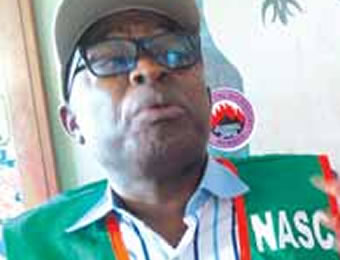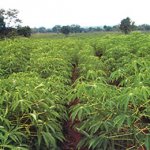The Director General of National Agriculture Seed Council (NASC) , Dr Olusegun Ojo have said that ensuring seed security will enhance food security in the country.
Ojo disclosed this while speaking with the Nigerian Tribune after his visit to the Commandant-General of the Nigeria Security and Civil Defence Corps (NSCDC), Abdullahi Muhammadu, in Abuja.
According to him, the purpose of the visit to the NSCDC was to seek partnership from the Corps to help secure some of the key facilities of the Council and also assist the Council in ensuring that adulterated seed is eradicated from the market.
“We came to seek collaboration and cooperation between the Seed Council and the NSCDC, because we believe that we must partner together because we have some critical facilities which they are actually monitoring and we have seen that the NSCDC have done a lot in monitoring and ensuring safety of critical facilities in Nigeria.
“Since we are in the seed industry, agriculture is beginning to be the mainstay of Nigeria now the price of oil is going down and seed is the beginning of agriculture, we must ensure seed security before we can have food security,” he said.
Ojo further said some persons have infiltrated the market with substandard seeds, but with collaboration with the NSCDC, the Council will be able to sanitise the market of those substandard seeds.
“Because we want to ensure that seed made available to farmers are in top quality and we discovered that there unscrupulous agents out there who are actually shortchanging the efforts of the government and the seed companies, it is our responsibility to ensure that they don’t succeed.
“We do a lot of intelligent gathering and raze of market to ensure that only seeds that have passed the standard set by the Council go into the market a doctor we can’t do it alone, we have to do it in conjunction with the NSCDC,” he added.
Speaking further on the facilities of the council that needs to be secured by the Corps, the DG said “we have regional offices in the six geo-political zones, and these regional offices have the seed testing laboratory, we have the seed processing plants and research facilities, these are critical infrastructure that has to be protected.
“In Sheda, Abuja, we have our technical headquarter where we have the centre seed testing laboratories and it is referee laboratory even for states in West Africa because the quantity of seed we produce in Nigeria is about 60 per cent of what is being used in West Africa, so these are critical facilities that have to be protected.”






